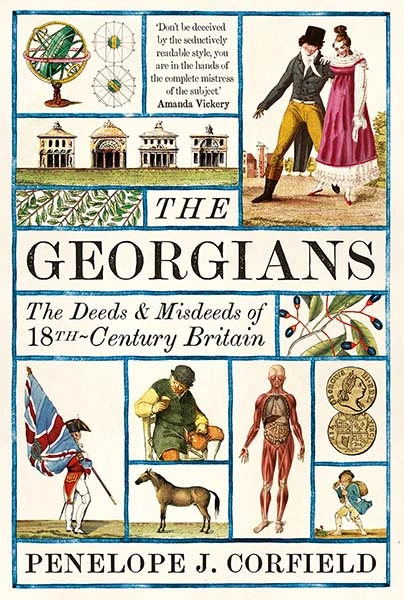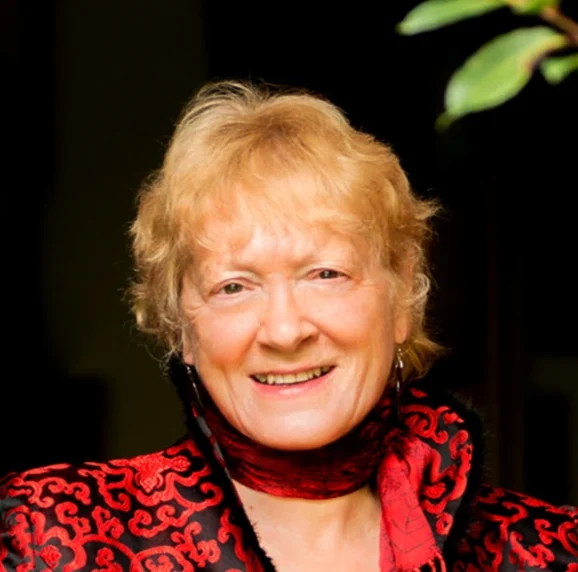Penelope J. Corfield on the secret gestures that shape society

John E. Kaye
- Published
- Science, Technology

Professor Penelope J. Corfield, the eminent British historian, hit the headlines last year after revealing the roots of the modern fist bump. Her groundbreaking research also uncovers how simple gestures—like the handshake—evolved from social rituals into everyday habits, shaping the way we connect today. She pulled no punches with The European’s Oliver Stansted
“Humans have notably prehensile hands, with which they do many clever things,” wrote the eminent British historian, Professor Penelope J. Corfield, in 2024. Unfortunately, as she noted in a research paper published by Cambridge University Press, hands can also be used by “incorrigible humans” in far less noble ways.
Her groundbreaking study, Egalitarian Greetings: The Social Spread of the Handshake in Urbanizing Britain, 1700–1850, was notable for three reasons. First, it was the first to prove that the handshake—so ubiquitous today—was not in widespread use until 1850. Second, it traced the deep historical roots of the fist bump, revealing that when boxers touch gloves before a fight, they are unknowingly carrying on a tradition that dates back centuries—a ritual of signalling peaceful intent before competition. And third, it was the first academic study to explore how seemingly trivial human gestures reflect far greater social transformations.
Piecing together this hidden history was no easy feat.
“Everyday gestures often go unnoticed in history, but they shape society just as much as wars and revolutions,” Corfield told The European in a rare interview.
“Many historians focus on grand events and figures, but it’s the small, unspoken rituals—easily lost to time—that reveal how people truly lived. These seemingly trivial details often hold the key to understanding deeper social transformations.”
Her 2024 paper garnered worldwide attention, cementing Corfield’s reputation as one of the foremost authorities on British social history, particularly the 18th and 19th centuries. But in truth, Corfield had been shaping the field for decades.
Educated in Britain, Corfield built her academic career in London, working across multiple institutions of the University of London, a fitting base for someone so deeply engaged in the study of Britain’s evolving society.
She has lectured across Europe, Australia, the United States, and Japan, where she has held prestigious visiting fellowships.
As President of the International Society for Eighteenth-Century Studies (ISECS) from 2019 to 2023, she expanded the organisation’s global presence, welcoming new national societies in India, Tunisia, and Ukraine—a milestone moment in the study of early modern history.
Despite her academic standing, Corfield has never been content with history confined to textbooks and lecture halls.
“I’ve always been drawn to patterns in human behaviour that transcend time,” she explained. “It’s not just about events but also about how societies evolve through the ordinary things people do every day: their greetings, their customs, the habits they rarely think to write down.”
Her 1995 book, Power and the Professions in Britain, 1700–1850, examined how professional occupations shaped modern British society. Later, The Georgians: The Deeds & Misdeeds of Eighteenth-Century Britain (2022) painted a vivid picture of the quirks, contradictions, and shifting social landscapes of the era.
But it is her recent work on everyday human behaviour—such as the handshake—that has sparked fresh conversations in both academic and cultural circles.
Corfield’s research uncovered unexpected connections between modern customs and long-forgotten traditions. The fist bump, for example, has its roots in centuries-old rituals of peace and fair play, particularly in combat sports. Bare-knuckle fighters in the 18th century would shake hands before a match, a gesture later adapted into the modern glove-touching ritual in boxing.
More broadly, her study revealed how the handshake gradually replaced older forms of social greeting, such as hat-tipping and deep bows, as Britain became more urbanised, and class distinctions blurred. By 1850, what had once been a niche practice among merchants and Quakers had become a near-universal greeting across all levels of British society.
And her findings don’t just explain the past—they offer a glimpse into the future.
In Egalitarian Greetings, Corfield predicts that the handshake is emerging as a global standard of greeting, balancing between cultures that avoid physical contact (like the formal Japanese bow) and those that embrace it (like the Russian bear hug). In a world that is increasingly interconnected, she suggests, this simple act may become the ultimate cross-cultural gesture of respect.

Corfield’s ability to connect the smallest of habits to the largest of historical forces is what makes her work so distinctive. Her interest in ‘Big History’—the study of long-term, global patterns—has led her to examine how human civilisation itself has evolved over millennia.
Her upcoming book, Time-Space: We Are All in It Together (Feb 2025), takes this approach even further. A mix of historical analysis, social theory, and philosophy, it explores not just how societies change, but how humans experience time itself.
Corfield, a self-proclaimed “optimist and lover of Planet Earth”, remains tangibly engaged with the present. A prolific blogger, she frequently writes about history’s relevance in today’s world, tackling topics from identity politics to the unseen threads that connect societies across time. One of her most widely cited posts, All People Are Living Histories, challenges the idea that history is confined to the past.
“We are all making history, whether by what we do or by what we don’t do,” she said. “History isn’t just something to be studied but something we live every day.”

Further information
www.penelopejcorfield.com
Penelope’s blogs are available at www.penelopejcorfield.com/monthly-blogs
RECENT ARTICLES
-
 WPSL targets £16m-plus in global sponsorship drive with five-year SGI partnership
WPSL targets £16m-plus in global sponsorship drive with five-year SGI partnership -
 Dubai office values reportedly double to AED 13.1bn amid supply shortfall
Dubai office values reportedly double to AED 13.1bn amid supply shortfall -
 €60m Lisbon golf-resort scheme tests depth of Portugal’s upper-tier housing demand
€60m Lisbon golf-resort scheme tests depth of Portugal’s upper-tier housing demand -
 2026 Winter Olympics close in Verona as Norway dominates medal table
2026 Winter Olympics close in Verona as Norway dominates medal table -
 Europe’s leading defence powers launch joint drone and autonomous systems programme
Europe’s leading defence powers launch joint drone and autonomous systems programme -
 Euro-zone business activity accelerates as manufacturing returns to expansion
Euro-zone business activity accelerates as manufacturing returns to expansion -
 Deepfake celebrity ads drive new wave of investment scams
Deepfake celebrity ads drive new wave of investment scams -
 WATCH: Red Bull pilot lands plane on moving freight train in aviation first
WATCH: Red Bull pilot lands plane on moving freight train in aviation first -
 Europe eyes Australia-style social media crackdown for children
Europe eyes Australia-style social media crackdown for children -
 These European hotels have just been named Five-Star in Forbes Travel Guide’s 2026 awards
These European hotels have just been named Five-Star in Forbes Travel Guide’s 2026 awards -
 McDonald’s Valentine’s ‘McNugget Caviar’ giveaway sells out within minutes
McDonald’s Valentine’s ‘McNugget Caviar’ giveaway sells out within minutes -
 Europe opens NanoIC pilot line to design the computer chips of the 2030s
Europe opens NanoIC pilot line to design the computer chips of the 2030s -
 Zanzibar’s tourism boom ‘exposes new investment opportunities beyond hotels’
Zanzibar’s tourism boom ‘exposes new investment opportunities beyond hotels’ -
 Gen Z set to make up 34% of global workforce by 2034, new report says
Gen Z set to make up 34% of global workforce by 2034, new report says -
 The ideas and discoveries reshaping our future: Science Matters Volume 3, out now
The ideas and discoveries reshaping our future: Science Matters Volume 3, out now -
 Lasers finally unlock mystery of Charles Darwin’s specimen jars
Lasers finally unlock mystery of Charles Darwin’s specimen jars -
 Strong ESG records help firms take R&D global, study finds
Strong ESG records help firms take R&D global, study finds -
 European Commission issues new cancer prevention guidance as EU records 2.7m cases in a year
European Commission issues new cancer prevention guidance as EU records 2.7m cases in a year -
 Artemis II set to carry astronauts around the Moon for first time in 50 years
Artemis II set to carry astronauts around the Moon for first time in 50 years -
 Meet the AI-powered robot that can sort, load and run your laundry on its own
Meet the AI-powered robot that can sort, load and run your laundry on its own -
 Wingsuit skydivers blast through world’s tallest hotel at 124mph in Dubai stunt
Wingsuit skydivers blast through world’s tallest hotel at 124mph in Dubai stunt -
 Centrum Air to launch first European route with Tashkent–Frankfurt flights
Centrum Air to launch first European route with Tashkent–Frankfurt flights -
 UK organisations still falling short on GDPR compliance, benchmark report finds
UK organisations still falling short on GDPR compliance, benchmark report finds -
 Stanley Johnson appears on Ugandan national television during visit highlighting wildlife and conservation ties
Stanley Johnson appears on Ugandan national television during visit highlighting wildlife and conservation ties -
 Anniversary marks first civilian voyage to Antarctica 60 years ago
Anniversary marks first civilian voyage to Antarctica 60 years ago



























